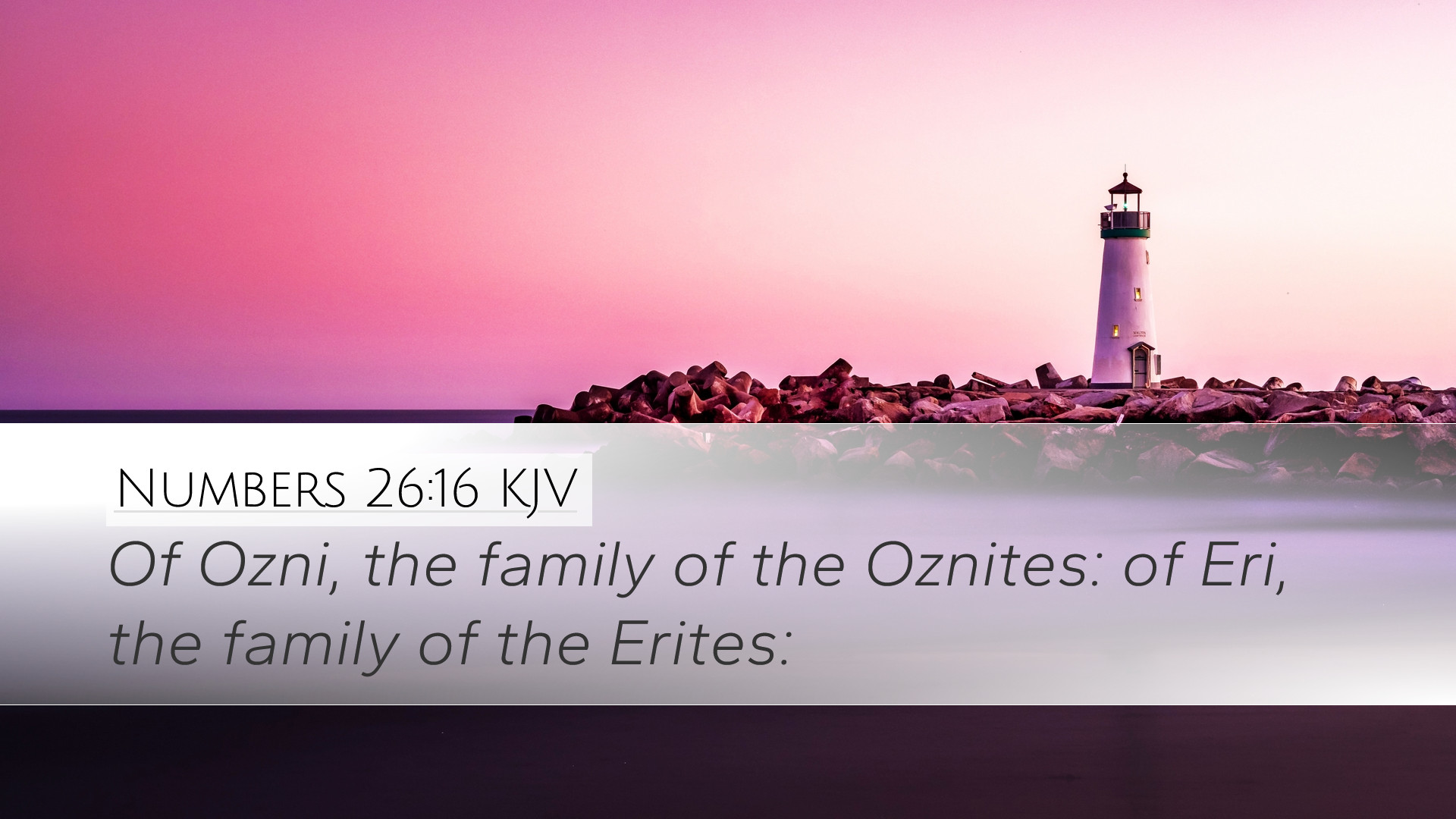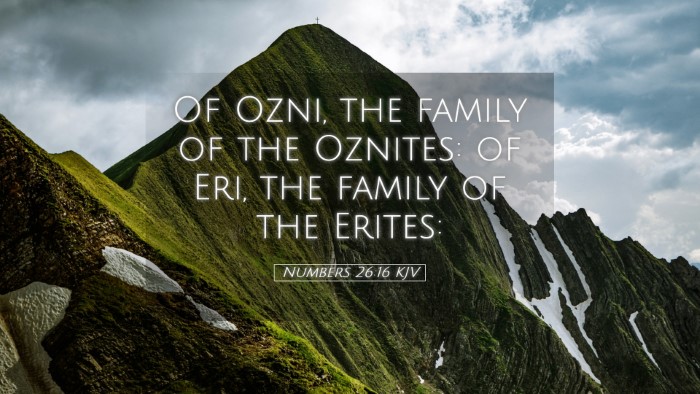Commentary on Numbers 26:16
Verse Text: “These are the families of the sons of Gad according to those that were numbered of them, forty thousand and five hundred.” - Numbers 26:16
Introduction
Numbers 26:16 marks a crucial moment in the book of Numbers where the census of the tribes of Israel is recorded. This verse specifically addresses the tribe of Gad, which was one of the twelve tribes of Israel. Understanding this verse provides insights into God’s faithfulness, the significance of tribal affiliations, and the broader context of Israel's journey toward the Promised Land.
Historical Context
The book of Numbers details the journey of the Israelites through the wilderness after their exodus from Egypt. This portion of Scripture includes various censuses that serve to account for the people of Israel, affirming God's promise to multiply His people. The census at this stage of their journey demonstrates the fulfillment of God's promises and the establishment of order among His people.
Commentary Insights
1. The Families of Gad
In both Matthew Henry's and Adam Clarke’s commentaries, the emphasis on Gad's family names illustrates the importance of lineage and identity within the Israelite community. Each family represented not just individuals but also a heritage that connected to God’s covenant with Israel.
-
Matthew Henry: He suggests that the families were named to reinforce their legacy and to ensure each tribe's responsibility in upholding God’s laws.
-
Adam Clarke: Emphasizes the genealogical importance, suggesting that understanding the family connections strengthened societal and tribal structure within the Israelite nation.
2. The Numbering of the Tribe
The number given in the verse (forty thousand and five hundred) indicates the size of Gad’s fighting men. This figure, when placed in the context of previous censuses, provides insights into the growth and dynamics of the tribe.
-
Albert Barnes: He points out that this number signifies the tribe's strength and potential contribution to Israel’s military, reinforcing that God’s blessings extended even in the wilderness journey.
-
Matthew Henry: Also notes that God's providence ensured that despite the hardships faced during their wanderings, they were still numerous.
3. Significance of Numbering
The act of numbering was not merely administrative; it had spiritual significance as well. It reflected God's intimate knowledge of His people and their significance in His divine plan.
-
Adam Clarke: Comments on how God’s precision in numbering the people highlights His concern for the individual within the collective community.
-
Barnes: Notes that this organization reflects God's desire for order and leadership among His people, paving the way for future generations to follow His commands.
Theological Implications
The details encompassed in Numbers 26:16 extend beyond mere statistics; they provide profound theological implications regarding God’s ongoing relationship with His people.
-
Covenant Faithfulness: God’s faithfulness to the tribes of Israel, exemplified through this census, reinforces His covenant promise to Abraham: that his descendants would be as numerous as the stars (Genesis 15:5).
-
Community and Identity: The specificity of tribes encourages the notion of community identity in the Christian faith, suggesting that believers find strength in their collective identities as children of God.
Conclusion
Numbers 26:16 encapsulates the essence of God's care for His people during their wilderness experience. The verse is a reminder that each tribe, down to individual families, plays a role in God's redemptive history. For pastors, students, theologians, and Bible scholars, the insights drawn from public domain commentaries enhance the understanding of biblical text and enrich one’s appreciation for God’s meticulous ways in shepherding His people.


